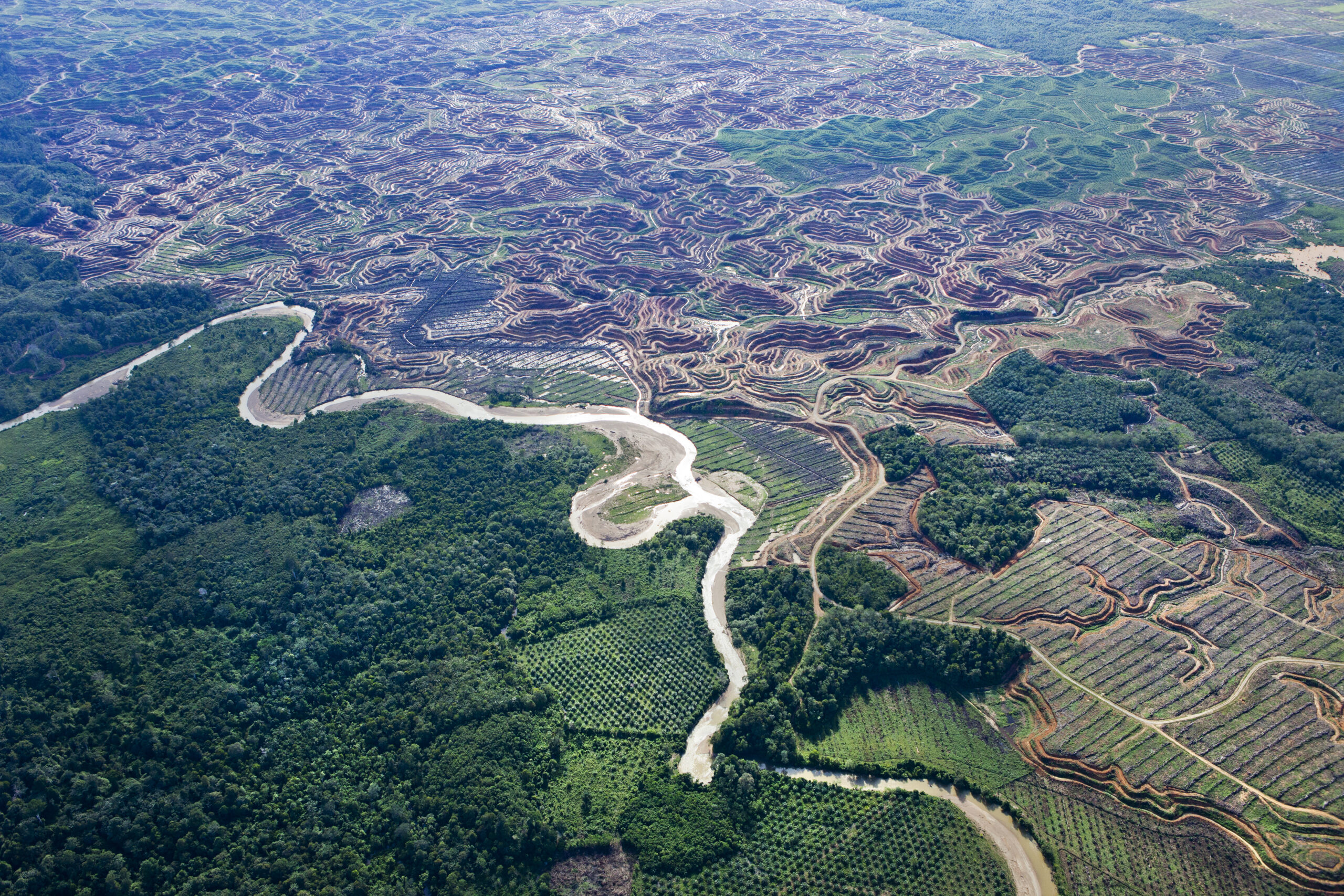RAN calls on major brands to ban sourcing from PT. Cemerlang Abadi
A new rogue palm oil company has emerged in the Leuser Ecosystem. PT. Cemerlang Abadi has a government allocated palm oil concession in the district of Aceh Barat Daya, an area of the Leuser Ecosystem that includes threatened lowland rainforests and peatlands. These peat forests provide vital habitat for many critically endangered species – including populations of the dangerously imperiled Sumatran Orangutan – amongst a patchwork of cleared lands and oil palm plantations. The forests within and surrounding PT. Cemerlang Abadi’s concessions have been devastated by widespread plantation development, with this district and the neighboring district of Nagan Raya containing the ecologically rich Tripa peatland, a region once celebrated as the ‘orangutan capital of the world.’
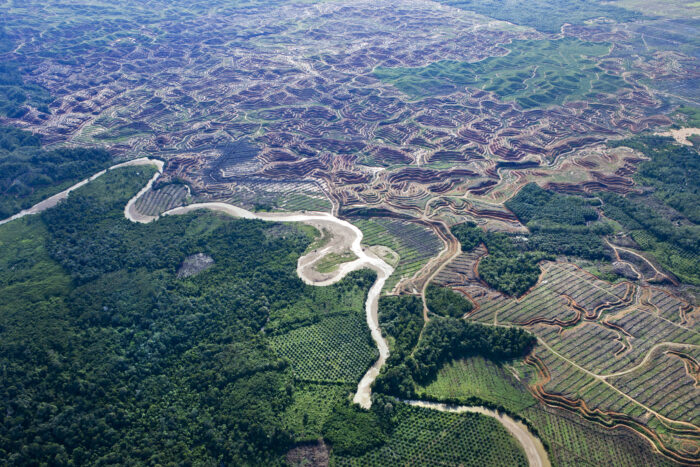
A critical carbon storehouse for the planet, Tripa has already been 70 per cent cleared for palm-oil plantations. (Photo by Paul Hilton for RAN)
The satellite evidence below shows that PT. Cemerlang Abadi has resumed clearance of forests and peatland areas since September of last year. Deforestation persisted until at least February 2022, with over 24 acres of secondary forests being cleared to make way for a palm oil plantation. PT. Cemerlang Abadi was named by RAN in 2014 as a problematic company whose concession overlapped with the Leuser Ecosystem in our first major report exposing the threats facing this globally important landscape.
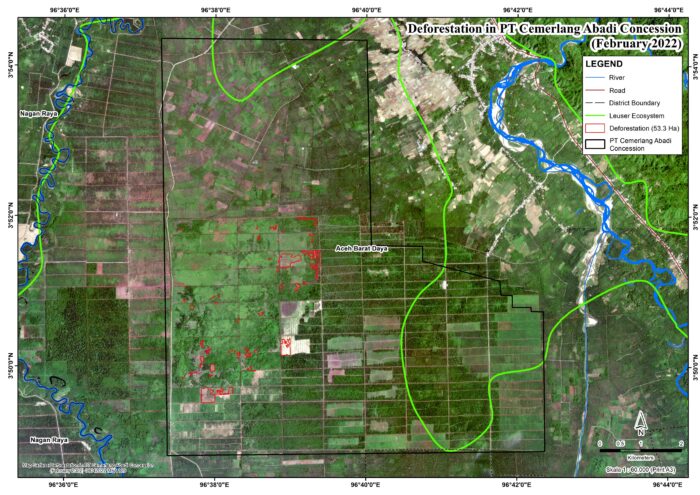
Satellite images showing forest clearance by PT. Cemerlang Abadi. February 2022.
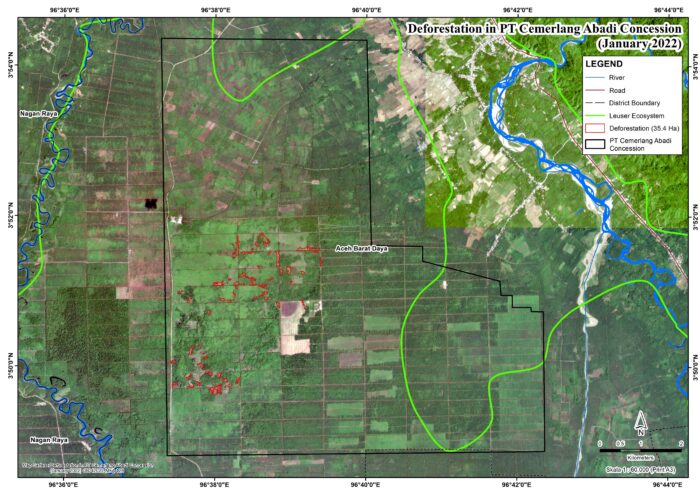
Satellite images showing forest clearance by PT. Cemerlang Abadi. January 2022.
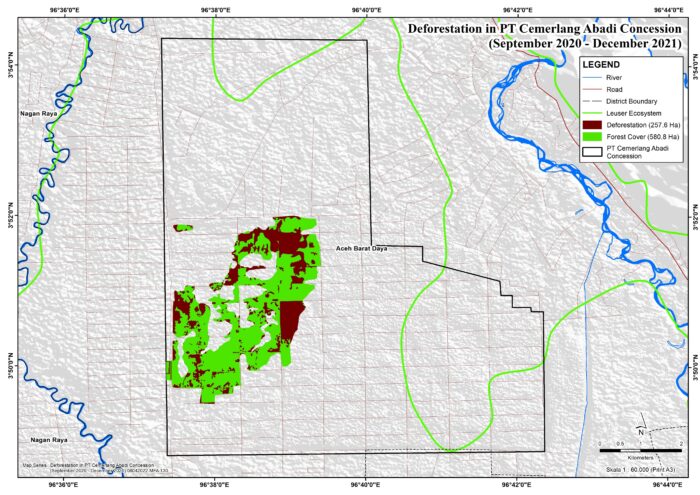
Satellite images showing forest clearance by PT. Cemerlang Abadi. September to December 2021.
As shown below, a significant area of the lands cleared appear to be secondary and young regenerating forests (regrowth forests). Over 24 acres of secondary forests have been cleared, as well as a further 740 acres of young regenerating forests. The policies of major brands like Procter & Gamble, PepsiCo, Mondelez, Unilever and Nestle require suppliers to ensure that new palm oil development is halted on peatlands and that all secondary and young regenerating forests––called High Carbon Stock forests––are protected from deforestation. Secondary and young regenerating forests have a crucial role to play in maintaining biodiversity, regulating the climate and protecting water supplies for local communities.
This satellite evidence shows that PT. Cemerlang Abadi is not fulfilling this requirement as it has cleared peatland for new development without conserving forests or undertaking an Integrated High Conservation Value-High Carbon Stock Assessment using the High Carbon Stock Approach. To maintain access to global markets, where consumers are demanding responsible palm oil, more palm oil companies in Aceh over the past few years have been applying the High Carbon Stock Approach before expanding their plantations. These brands must ensure that all suppliers in Aceh are adhering to their ‘No Deforestation, No Peatland and No Exploitation’ policies and place PT. Cemerlang Abadi on their No Buy lists until it halts new development and protects and restores lowland rainforests and peatlands within its concession.
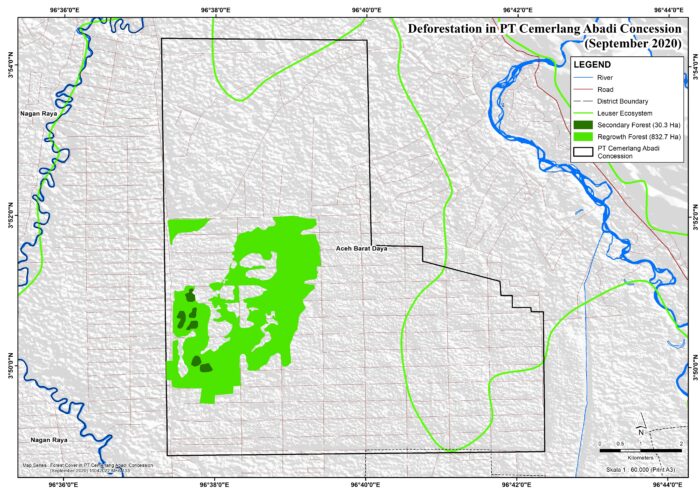
A map showing the areas cleared that have been confirmed as secondary forests and regrowth forests that appear to be young regenerating forests requiring protection for plantation development
To date there is not a single brand that has listed PT. Cemerlang Abadi on their grievance lists as a suspended supplier. This shows that the forest monitoring and compliance systems that are in place remain ineffective at addressing deforestation and new development on peatlands in palm oil supply chains in Aceh. RAN is calling on an influential group of brands in our Keep Forest Standing campaign to establish robust monitoring systems that identify deforestation across all threatened forests and peatlands in their supply chains and to hold bad actors to account for ongoing deforestation. The case of PT. Cemerlang Abadi shows that there is significant room for improvement by demonstrating that these brands can not yet prove that they have ended their role in driving the deforestation and climate chaos caused by the degradation of peatlands in the Leuser Ecosystem.
